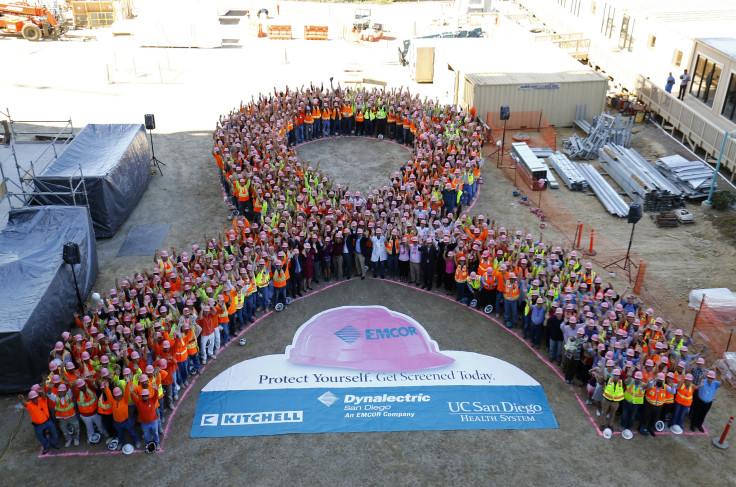Breakthrough Breast Cancer Research Could Decrease Risk Of Additional Surgery, Mortality Rate

Nearly half of the 300,000 women in the United States who are diagnosed with breast cancer every year undergo extensive surgery to remove the tumor. Twenty to 40 percent of those women wake up from the anesthetic and still have cancer cells present, meaning an inevitable second surgery or the risk of cancer spreading to other areas in the body.
Research published Saturday indicates removing additional tissue around the tumor during the first surgery on all patients would reduce the risk of requiring a second surgery for an estimated 100,000 women diagnosed with breast cancer, according to Yale Cancer Study published in the New England Journal of Medicine.
"This randomized controlled trial has the potential to have a huge impact for breast cancer patients," Dr. Anees Chagpar, lead author of the study and associate professor of surgery (oncology) at Yale School of Medicine and director of the Breast Center at Smilow Cancer Hospital at Yale-New Haven. "No one likes going back to the operating room, especially not the patients who face the emotional burden of another surgery."
Researchers randomly selected 235 women with breast cancer varying from stage zero to stage three for the study, the conclusion of which showed the number of women who would have needed an additional surgery was reduced by half.
The procedure allows for the removal of additional tissue, without causing any changes in physical appearance or additional medical complications, Chagpar said. This is an important factor as most women who have lumpectomies are able to keep their breasts.
In a separate news released just a day before the Yale study, researchers found women could benefit from a different drug than the one typically prescribed after surgery for breast cancer, Agence France-Presse reported.
Both drugs aim to limit production of estrogen, which can cause breast cancer cells with hormone-positive receptors to reproduce. Women who took anastrazole, a drug that halts the production of estrogen, for five years after the medical procedure had a higher rate of survival than those who took tamoxifen, used to block estrogen from reaching cancer cells.
"The good news is tamoxifen and anastrazole are both very effective, but it seems that women have better chances of staying well with anastrazole," said Richard Margolese, lead author of the study and a professor of surgical oncology at the Jewish General Hospital, McGill University in Montreal. "Women should also consider differences in side effects when discussing treatment options with their doctors."
© Copyright IBTimes 2025. All rights reserved.






















